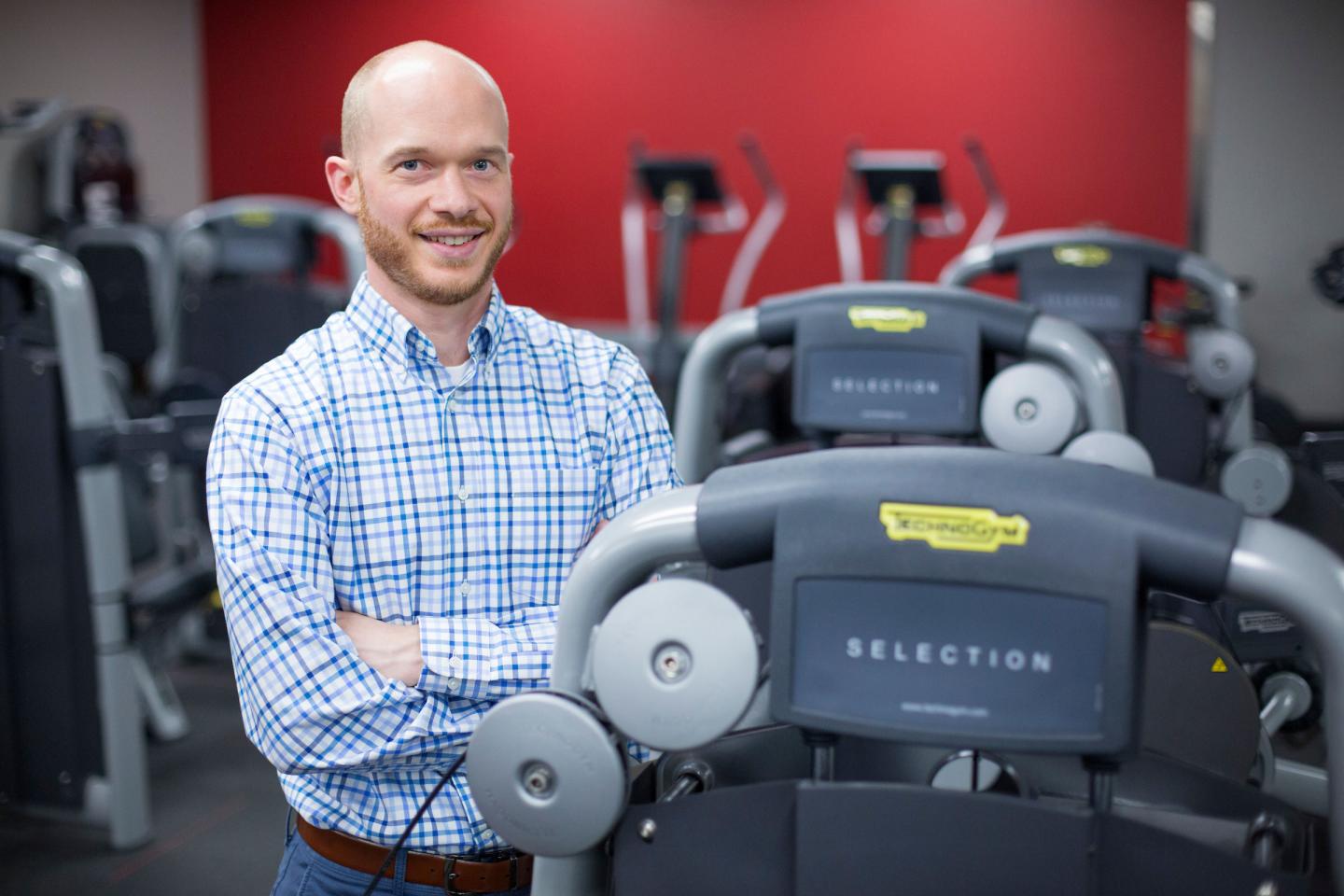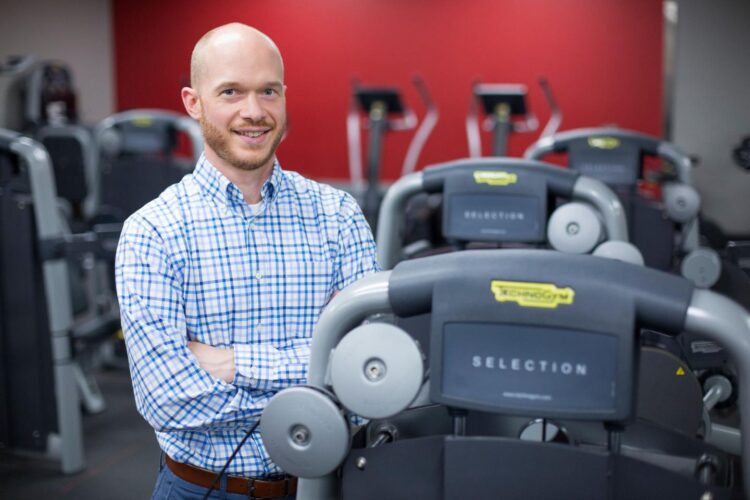
Credit: Christopher Gannon, Iowa State University
AMES, Iowa – Moving more and sitting less was a challenge for many of us, even before states started issuing stay-at-home orders. Despite disruptions to our daily work and exercise routines, there are some subtle changes we can make at home to help improve our mental health.
New research, published by the American Journal of Preventive Medicine, found that substituting prolonged sedentary time with sleep was associated with lower stress, better mood and lower body mass index (BMI), and substituting light physical activity was associated with improved mood and lower BMI across the next year. Jacob Meyer, lead author and assistant professor of kinesiology at Iowa State University, says light activity can include walking around your home office while talking on the phone or standing while preparing dinner.
“People may not even think about some of these activities as physical activity,” Meyer said. “Light activity is much lower intensity than going to the gym or walking to work, but taking these steps to break up long periods of sitting may have an impact.”
Meyer and colleagues used data collected as part of the Energy Balance Study at the University of South Carolina. For 10 days, study participants, ranging in age from 21 to 35, wore an armband that tracked their energy expenditure. Meyer, director of the Wellbeing and Exercise Lab at Iowa State, says the data allowed researchers to objectively measure sleep, physical activity and sedentary time, rather than relying on self-reports.
In addition to the benefits of sleep and light physical activity, the researchers found moderate to vigorous activity was associated with lower body fat and BMI. Given the negative health effects of prolonged sedentary time, Meyer says the findings may encourage people to make small changes that are sustainable.
“It may be easier for people to change their behavior if they feel it’s doable and doesn’t require a major change,” Meyer said. “Replacing sedentary time with housework or other light activities is something they may be able to do more consistently than going for an hour-long run.”
Getting more sleep is another relatively simple change to make. Instead of staying up late watching TV, going to bed earlier and getting up at a consistent time provides multiple benefits and allows your body to recover, Meyer said. Sleeping is also unique in that it is time you’re not engaging in other potentially problematic behaviors, such as eating junk food while sitting in front of a screen.
Something we can control
Making these subtle changes was associated with better current mood, but light physical activity also provided benefits for up to a year, the study found. While the research was conducted prior to the COVID-19 pandemic, Meyer says the results are timely given the growing mental health concerns during this time of physical distancing.
“With everything happening right now, this is one thing we can control or manage and it has the potential to help our mental health,” Meyer said.
As states start to ease stay-at-home restrictions, Meyer is looking at changes in physical activity and sitting time with potentially interesting results for those who regularly worked out prior to the pandemic. Preliminary data from a separate study show a 32% reduction in physical activity. The question he and colleagues hope to answer is how current changes in activity interact with mental health and how our behaviors will continue to change over time.
###
Laura Ellingson, Western Oregon University; Matthew Buman, Arizona State University; Robin Shook, Children’s Mercy Hospital in Kansas City; Gregory Hand, West Virginia University; and Steven Blair, University of South Carolina, all contributed to the research published by the American Journal of Preventive Medicine.
Media Contact
Jacob Meyer
[email protected]
Original Source
https:/
Related Journal Article
http://dx.





